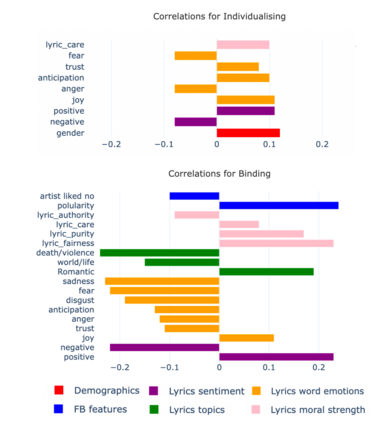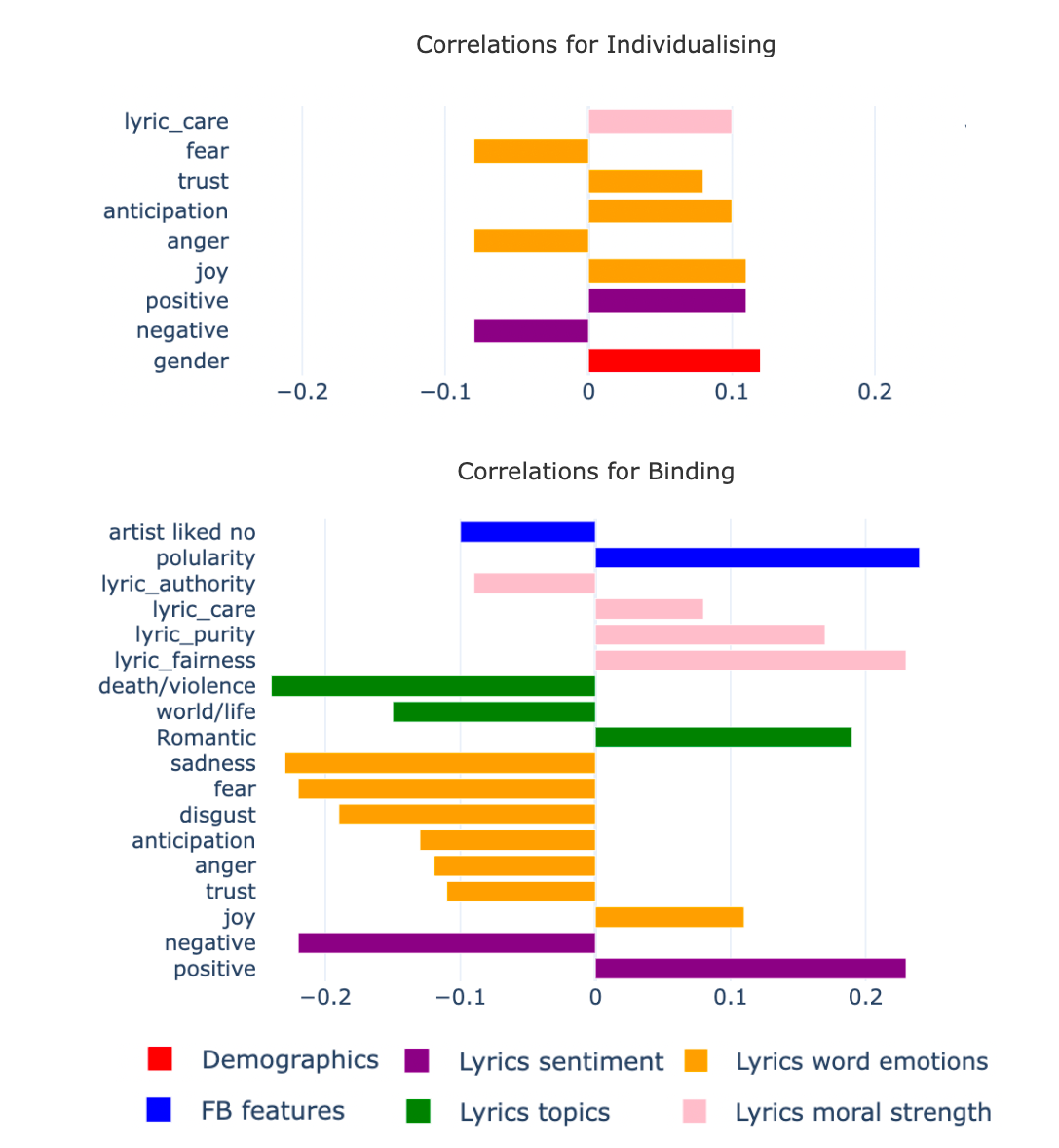This study explores the association between music preferences and moral values by applying text analysis techniques to lyrics. Harvesting data from a Facebook-hosted application, we align psychometric scores of 1,386 users to lyrics from the top 5 songs of their preferred music artists as emerged from Facebook Page Likes. We extract a set of lyrical features related to each song's overarching narrative, moral valence, sentiment, and emotion. A machine learning framework was designed to exploit regression approaches and evaluate the predictive power of lyrical features for inferring moral values. Results suggest that lyrics from top songs of artists people like inform their morality. Virtues of hierarchy and tradition achieve higher prediction scores ($.20 \leq r \leq .30$) than values of empathy and equality ($.08 \leq r \leq .11$), while basic demographic variables only account for a small part in the models' explainability. This shows the importance of music listening behaviours, as assessed via lyrical preferences, alone in capturing moral values. We discuss the technological and musicological implications and possible future improvements.
翻译:本研究探索音乐偏好与道德价值之间的联系,对歌词应用文字分析技术。从Facebook主持的一个应用程序中收集数据,我们将1 386名用户的心理分数与FacebookPage Lives所出现的首选音乐艺术家最上五首歌的歌词相匹配。我们从每首歌的总体叙事、道德价值、情绪和情感中抽出一套与每首歌总体叙事、道德价值、情绪和情感有关的流体特征。一个机器学习框架旨在利用回归方法,评价曲解特征的预测能力,以推断道德价值。结果显示,来自像艺术人物最上流的歌曲的歌词可以告知他们的道德。等级和传统的风尚和传统,比同情和平等价值(0.8\leq r\leq r\leq.11美元)获得更高的预测分数(20\leq leq r\leqq 30$),而基本的人口变量只说明模型解释中的一小部分。这显示了音乐倾听行为的重要性,通过语言偏好来评估,仅在获取道德价值方面。我们讨论了技术和音乐的影响以及未来可能的改进。我们讨论了技术和音乐的影响。








